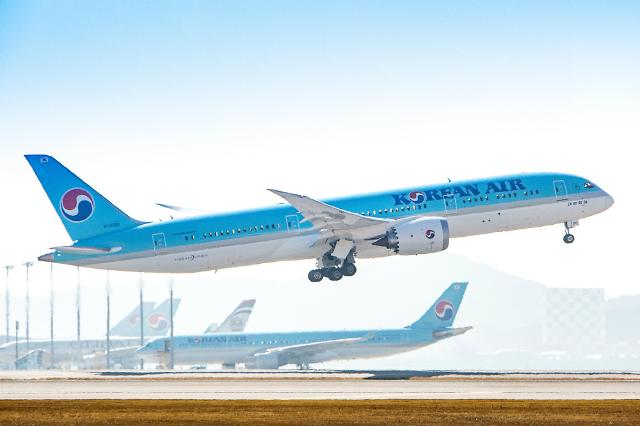The feeling of crisis grew as the national pension, the second largest shareholder of Korean Air, decided to exercise a negative vote for reasons such as’damaging shareholder value’, but about 70% of the attending shareholders agreed and the original proposal was approved.
Korean Air is planning to speed up the integration of the two companies by filing a business combination report with domestic and international competition authorities by mid-January and completing due diligence on Asiana Airlines without any problems.
◆Amendment of the articles of incorporation passed… as planned
Korean Air held an extraordinary general shareholders’ meeting at its headquarters in Gangseo-gu, Seoul on the morning of the 6th, and passed a draft amendment to increase the total number of issued shares from 250 million to 700 million. The total number of shares stipulated in the articles of incorporation had to be increased in order to raise a capital increase worth 2.5 trillion won in order to raise funds for the acquisition of Asiana Airlines.
Among Korean Air’s total number of 175,322,466 stocks with voting rights, 55.73% of 9772,2790 shares attended, of which 69.98% of the amendments of the articles of incorporation were approved.
The amendment of the articles of incorporation is a special resolution, and approval of at least two-thirds of the voting rights of shareholders present at the shareholders’ meeting and at least one-third of the total number of issued stocks is a condition for approval.
The National Pension Trustee Responsibility Committee announced on the previous day that it would exercise the right to vote against the amendment of the articles of incorporation of Korean Air, but it did not prevent the change of the articles of incorporation.
In the industry, in addition to the stakes of specially related persons, such as Cho Won-tae, chairman of Hanjin Group, minority shareholders and employee stock ownership associations seemed to vote in favor.
As of the end of the third quarter of last year, Han Jin Kal, the largest shareholder, and related parties own 31.13%, and the second largest shareholder, the National Pension Service, owns 8.11%. In addition, Korean Air employee stock ownership (6.39%) and Credit Switzerland (3.75%) are major shareholders.

◆The birth of a super-large airline…
According to the revised articles of association, Korean Air will be able to promote a paid-in capital increase for the acquisition of Asiana Airlines. As planned, in mid-March, the company plans to increase the amount allocated to shareholders worth 2.5 trillion won.
Hanjin Kal, the parent company of Korean Air, participated in a capital increase of 2.5 trillion won with support from Korea Development Bank, and Korean Air contributed 1.8 trillion won to Asiana Airlines’ new shares (1.5 trillion won) and permanent bonds ( 300 billion won) to acquire more than 60% stake in Asiana Airlines, becoming the largest shareholder.
The remaining procedures are the establishment of a post-acquisition integration plan (PMI) that can maximize the synergy effect of integration, and a business combination review by the competition authorities. Korean Air plans to complete the establishment of the PMI in March, and is operating a takeover committee consisting of working groups by sectors such as planning, finance, passengers, and cargo.
Also, by the middle of this month, it will apply for a business combination review with domestic and foreign competition authorities. Since there have been numerous mergers of major US-European airlines so far, it is expected that the examination for consolidation of foreign companies will pass smoothly. It is highly likely that the Fair Trade Commission will also approve the merger, recognizing Asiana Airlines as an unrecoverable company.
Previously, Korean Air President Woo Ki-hong said at an online press conference held in December last year, “As of Incheon International Airport, Korean Air and Asiana Airlines currently have a 38.5% share of passenger slots and 40% including cargo planes.” It is difficult to say that it is a monopoly because if it is included, its market share is lowered.”
